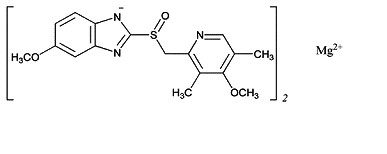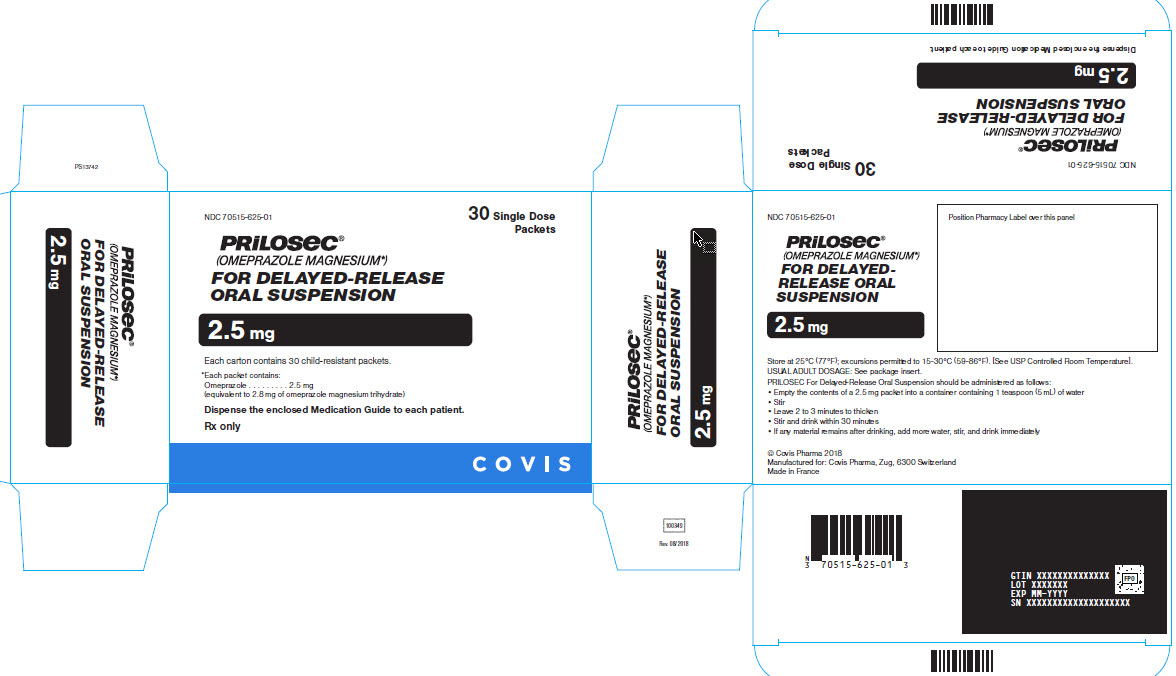Prilosec
Generic name: omeprazole
Drug class: Proton pump inhibitors
What is Prilosec?
A prescription medicine called a proton pump inhibitor (PPI) used to reduce the amount of acid in your stomach.
In adults Prilosec is used for:
- for up to 8 weeks for the healing of duodenal ulcers.
- 10 to 14 days with certain antibiotics to treat an infection caused by bacteria called H. pylori. If needed, your doctor may prescribe another 14 to 18 days of Prilosec after treatment with the antibiotics.
- up to 8 weeks for the healing stomach ulcers.
- up to 4 weeks to treat heartburn and other symptoms that happen with gastroesophageal reflux disease (GERD).
- up to 8 weeks for the healing and symptom relief of acid-related damage to the lining of the esophagus (called erosive esophagitis or EE). Your doctor may prescribe another 4 weeks of Prilosec in patients whose EE does not heal.
- maintaining healing of EE and to help prevent the return of heartburn symptoms caused by GERD. It is not known if Prilosec is safe and effective when used for longer than 12 months for this purpose.
- the long-term treatment of conditions where your stomach makes too much acid. This includes a rare condition called Zollinger-Ellison Syndrome.
In children 1 to 16 years of age Prilosec is used for:
- up to 4 weeks to treat heartburn and other symptoms that happen with GERD.
- up to 8 weeks to treat GERD with EE.
- maintaining healing of EE and to help prevent the return of heartburn symptoms caused by GERD. It is not known if Prilosec is safe and effective when used longer than 12 months for this purpose.
In children 1 month to less than 12 months of age Prilosec is used for:
- up to 6 weeks to treat GERD with EE. It is not known if Prilosec is safe and effective for other uses in children 1 month to less than 12 months of age, or in children less than 1 month of age.
Description
The active ingredient in PRILOSEC (omeprazole magnesium) for delayed-release oral suspension, is 5-Methoxy-2-[[(4-methoxy-3,5-dimethyl-2-pyridinyl)methyl]sulfinyl]-1H-benzimidazole, magnesium salt (2:1).
Omeprazole magnesium is a white to off white powder with a melting point with degradation at 200°C. The salt is slightly soluble (0.25 mg/mL) in water at 25°C, and it is soluble in methanol. The half-life is highly pH dependent.
The empirical formula for omeprazole magnesium is (C17H18N3O3S)2 Mg, the molecular weight is 713.12 and the structural formula is:

Each packet of PRILOSEC for delayed-release oral suspension contains either 2.5 mg or 10 mg of omeprazole (equivalent to 2.8 mg or 11.2 mg of omeprazole magnesium trihydrate), in the form of enteric-coated granules with the following inactive ingredients: glyceryl monostearate, hydroxypropyl cellulose, hypromellose, magnesium stearate, methacrylic acid copolymer C, polysorbate, sugar spheres, talc, and triethyl citrate, and also inactive granules. The inactive granules are composed of the following ingredients: citric acid, crospovidone, dextrose, hydroxypropyl cellulose, iron oxide and xanthan gum. The omeprazole granules and inactive granules are constituted with water to form a suspension and are given by oral, nasogastric, or direct gastric administration.
Mechanism of Action
Omeprazole belongs to a class of antisecretory compounds, the substituted benzimidazoles, that suppress gastric acid secretion by specific inhibition of the H+/K+ ATPase enzyme system at the secretory surface of the gastric parietal cell. Because this enzyme system is regarded as the acid (proton) pump within the gastric mucosa, omeprazole has been characterized as a gastric acid-pump inhibitor, in that it blocks the final step of acid production. This effect is dose-related and leads to inhibition of both basal and stimulated acid secretion irrespective of the stimulus.
What is the most important information I should know about Prilosec?
Prilosec may help your acid-related symptoms, but you could still have serious stomach problems. Talk with your doctor.
Prilosec can cause serious side effects, including:
- A type of kidney problem (acute interstitial nephritis). Some people who take proton pump inhibitor (PPI) medicines, including Prilosec, may develop a kidney problem called acute interstitial nephritis that can happen at any time during treatment with Prilosec. Call your doctor right away if you have a decrease in the amount that you urinate or if you have blood in your urine.
- Diarrhea caused by an infection (Clostridium difficile) in your intestines. Call your doctor right away if you have watery stools or stomach pain that does not go away. You may or may not have a fever.
- Bone fractures (hip, wrist, or spine). Bone fractures in the hip, wrist, or spine may happen in people who take multiple daily doses of PPI medicines and for a long period of time (a year or longer). Tell your doctor if you have bone fracture especially in the hip, wrist, or spine.
- Certain types of lupus erythematosus. Lupus erythematosus is an autoimmune disorder (the body’s immune cells attack other cells or organs in the body). Some people who take PPI medicines, including Prilosec, may develop certain types of lupus erythematosus or have worsening of the lupus they already have. Call your doctor right away if you have new or worsening joint pain or a rash on your cheeks or arms that gets worse in the sun.
Talk to your doctor about your risk of these serious side effects.
Prilosec can have other serious side effects. See “What are the possible side effects of Prilosec?”.
Who should not take Prilosec?
Do not take PRILOSEC if you are:
- allergic to omeprazole, any other PPI medicine, or any of the ingredients in Prilosec. See the end of the Medication Guide for a complete list of ingredients.
- taking a medicine that contains rilpivirine (Edurant, Complera, Odefsey used to treat HIV-1 (Human Immunodeficiency Virus).
What should I tell my healthcare provider before taking Prilosec?
Before taking Prilosec, tell your doctor about all of your medical conditions, including if you:
- have low magnesium levels in your blood
- are pregnant or plan to become pregnant. It is not known if Prilosec will harm your unborn baby.
- are breastfeeding or plan to breastfeed. Prilosec can pass into your breast milk. Talk to your doctor about the best way to feed your baby if you take Prilosec.
Tell your doctor about all the medicines you take, including prescription and over-the-counter medicines, vitamins and herbal supplements.
Especially tell your doctor if you take a medicine that contains:
- clarithromycin or amoxicillin
- clopidogrel (Plavix)
- methotrexate (Otrxup, Rasuvo, Trexall, Xatmep)
- digoxin (Lanoxin)
- a water pill (diuretic)
- St. John’s Wort (Hypericum perforatum)
- rifampin (Rimactane, Rifater, Rifamate).
How should I take prilosec?
- Take Prilosec exactly as prescribed by your doctor.
- Do not change your dose or stop Prilosec without talking to your doctor.
- Prilosec is usually taken 1 time each day.
- Take Prilosec before a meal.
- Antacids may be taken with Prilosec.
- Prilosec is mixed with water and can be taken by mouth, or given through a nasogastric (NG) tube or gastric tube.
- See the Instructions for Use with your medication for instructions on how to mix and take Prilosec by mouth in water or how to mix and give Prilosec through an NG tube or gastric tube mixed in water.
- If you miss a dose of Prilosec, take it as soon as you remember. If it is almost time for your next dose, do not take the missed dose. Take the next dose at your regular time. Do not take 2 doses at the same time.
- If you take too much Prilosec, call your doctor or your poison control center at 1-800-222-1222 right away or go to the nearest emergency room.
What are the possible side effects of Prilosec?
Prilosec can cause serious side effects, including:
- See “What is the most important information I should know about Prilosec?”.
- Low vitamin B-12 levels in your body can happen in people who have taken Prilosec for a long time (more than 3 years). Tell your doctor if you have symptoms of low vitamin B-12 levels, including shortness of breath, lightheadedness, irregular heartbeat, muscle weakness, pale skin, feeling tired, mood changes, and tingling or numbness in the arms and legs.
- Low magnesium levels in your body can happen in people who have taken Prilosec for at least 3 months. Tell your doctor if you have symptoms of low magnesium levels, including seizures, dizziness, irregular heartbeat, jitteriness, muscle aches or weakness, and spasms of hands, feet or voice.
- Stomach growths (fundic gland polyps). People who take PPI medicines for a long time have an increased risk of developing a certain type of stomach growths called fundic gland polyps, especially after taking PPI medicines for more than 1 year.
The most common side effects with Prilosec in adults include:
- headache
- stomach-area (abdominal) pain
- nausea
- diarrhea
- vomiting
- gas.
The most common side effects of Prilosec in children 1 to 16 years of age include:
- upper respiratory infection
- fever
- headache
- stomach-area (abdominal) pain
- nausea
- diarrhea
- vomiting
- gas.
These are not all the possible side effects of Prilosec.
Call your doctor for medical advice about side effects. You may report side effects to FDA at 1-800-FDA-1088.
Drug Interactions
A total of 208 medications are known to interact with Prilosec. Use the Interactions Checker Tool.
Common Interactions Checks
- aspirin
- Cymbalta
- gabapentin
- Lasix
- Lipitor
- lisinopril
- metformin
- prednisone
- Synthroid
- trazodone
- Vitamin D3
- Xanax
General information about the safe and effective use of Prilosec
Medicines are sometimes prescribed for purposes other than those listed in a Medication Guide. Do not use Prilosec for a condition for which it was not prescribed. Do not give Prilosec to other people, even if they have the same symptoms that you have. It may harm them. You can ask your doctor or pharmacist for information about Prilosec that is written for health professionals.
How should I store Prilosec?
Store Prilosec at room temperature between 68°F to 77°F (20°C to 25°C).
Keep Prilosec and all medicines out of the reach of children.
What are the ingredients in Prilosec?
Active ingredient: omeprazole magnesium
Inactive ingredients: glyceryl monostearate, hydroxypropyl cellulose, hypromellose, magnesium stearate, methacrylic acid copolymer C, polysorbate, sugar spheres, talc, and triethyl citrate, and also inactive granules. The inactive granules are composed of citric acid, crospovidone, dextrose, hydroxypropyl cellulose, iron oxide and xanthan gum.
Label
PRINCIPAL DISPLAY PANEL – 2.5 MG CARTON LABEL
- NDC 70515-625-01
- 30 Single Dose
Packets - PRILOSEC®
(OMEPRAZOLE MAGNESIUM*)
FOR DELAYED-RELEASE
ORAL SUSPENSION
